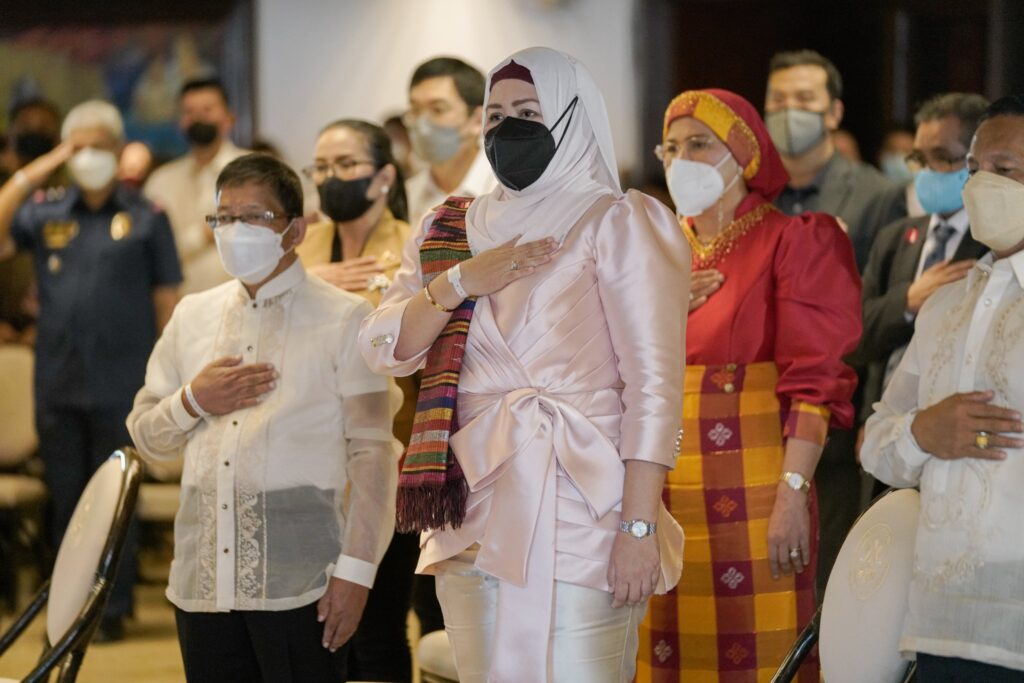
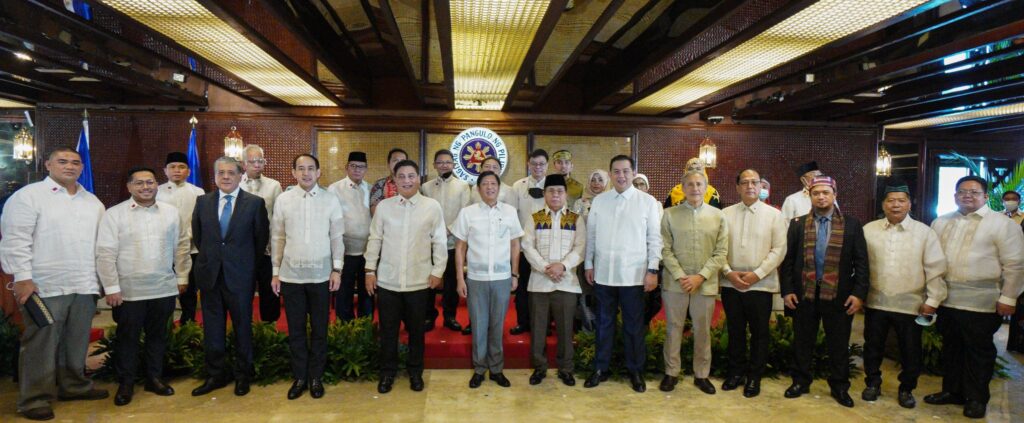


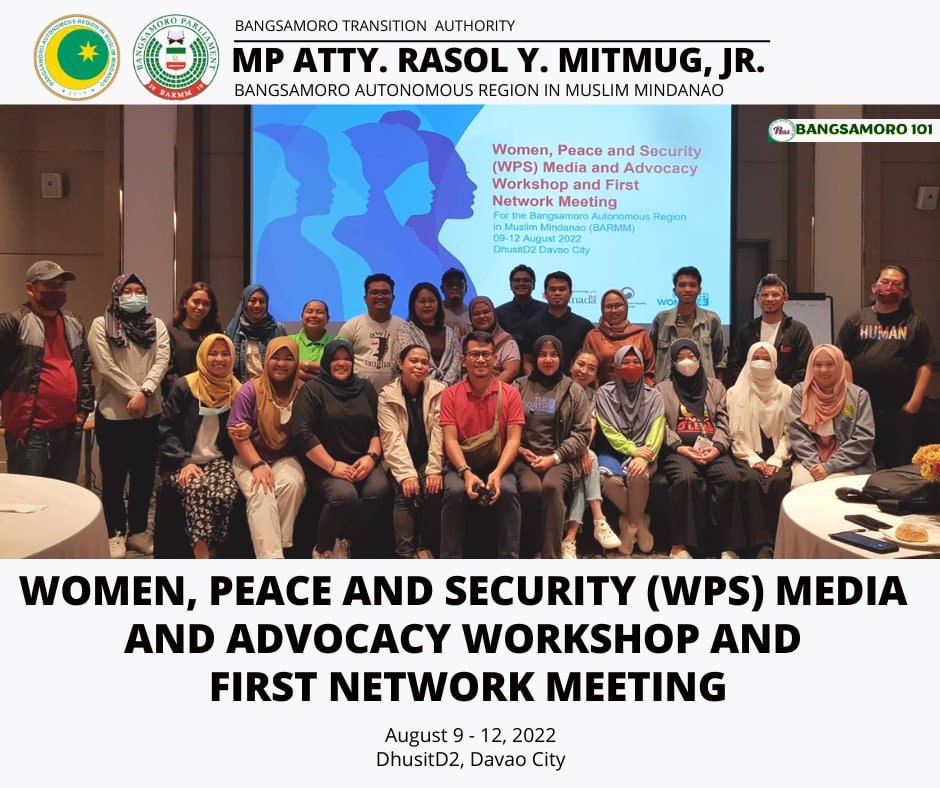
The Office of MP Atty. Rasol Y. Mitmug, Jr. distributed 22 insulated bags with raincoats and tumblers through its Transition Development Impact Fund (TDIF) to the food delivery riders in Marawi City, this is in connection with the Support to Income Generation of Local Ambulant Entrepreneurs (SIGLA) Programs of the Ministry of Trade, Industry and Tourism (MTIT).
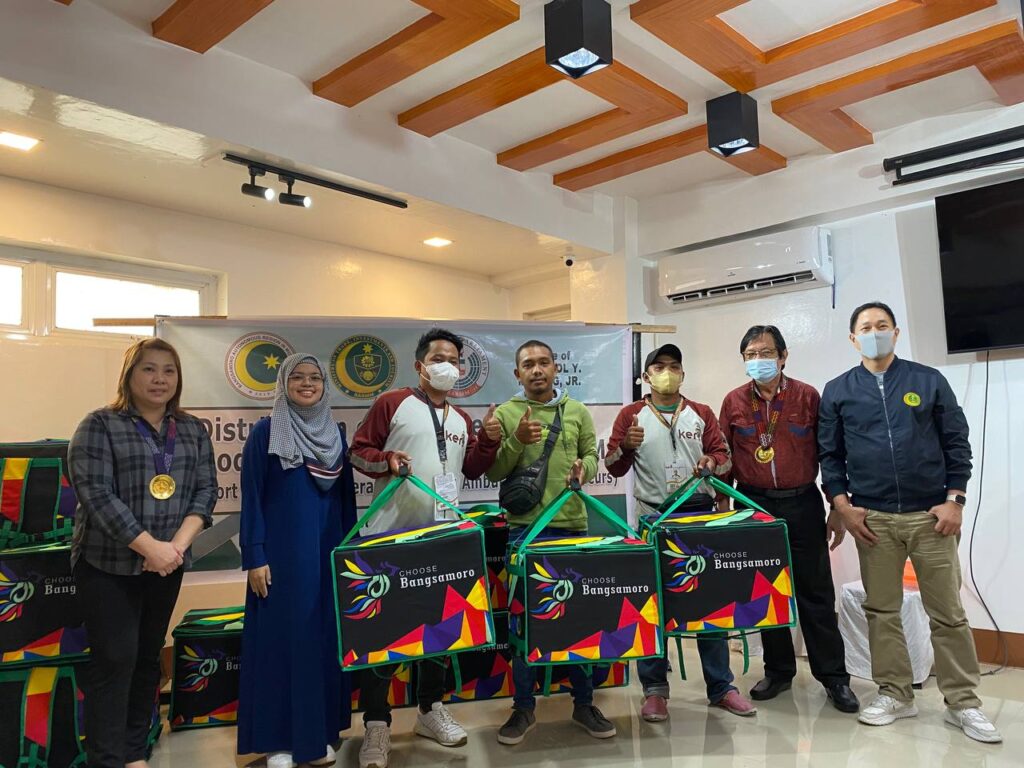
As stated by Rosslaini A. Sinarimbo, Director General of MTIT, the SIGLA programs aim to support small businesses like those registered food delivery express so that they would be able to serve their costumers effectively.
Meanwhile, Mr. Abubacar Sangcopan, one of the beneficiary of the program, extended his gratitude as the insulated bag would be helpful for him as Keri Express Rider in Marawi City.
This is in line with the desire of MP Mitmug to support local businesses, especially those affected by the pandemic.
Forum and launch of The Organic Law for the Bangsamoro Autonomous Region: Framework and Annotations and the Signing of the Agreement of Cooperation between the Institute for Autonomy & Governance and the Mindanao State University System at the Luxe Hotel, Cagayan de Oro City.
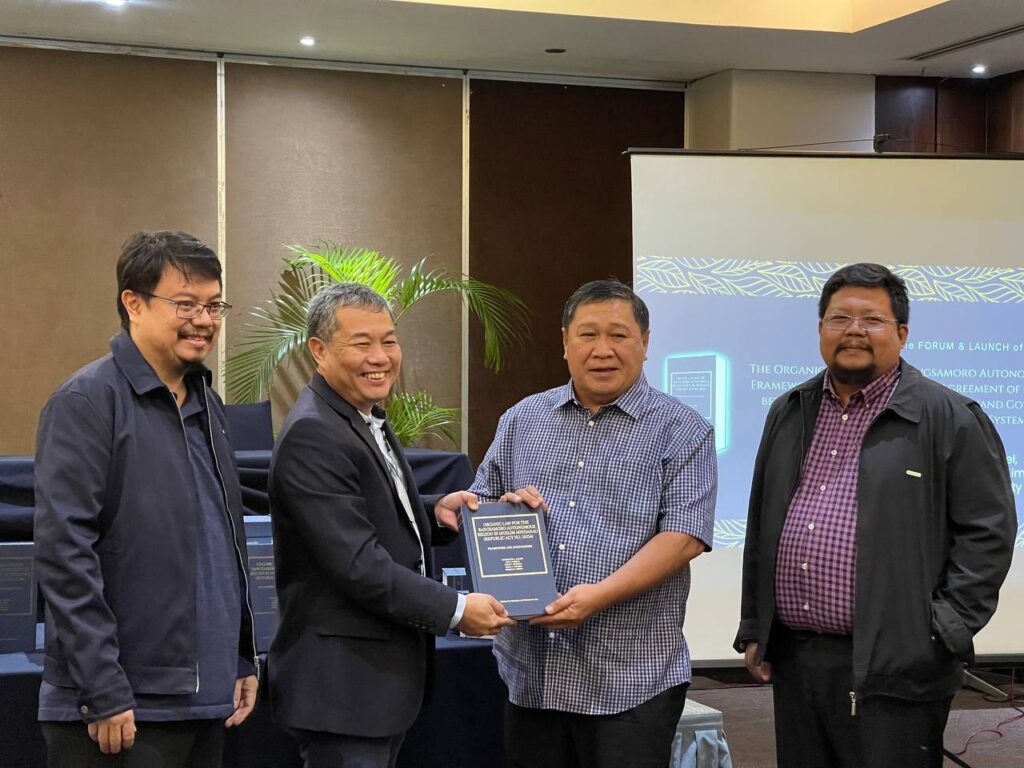
This is the 3rd launching of the book. Authors Atty. Ishak Mastura, Atty. Johaira Wahab, and MP Ras Mitmug gave short messages. Mastura & Mitmug also fielded questions from the audience.
The Agreement of Cooperation is a general agreement between IAG and MSU System to cooperate on three themes: (1) Rule of Law, (2) Governance, (3) and Justice Systems. IAG Exec Director Benny Bacani and MSUS President Atty. Basari Mapupuno assured they would provide assistance in the crucial stages of the Bangsamoro Goverment.
During his message, Atty. Mitmug noted that the failure with the ARMM was that the people did not understand what it was, nor the laws or policies it enacted. He hoped the book would contribute to the greater understanding of the BOL, and explained that the annotations in the book do not present a singular view. Rather, the text provided several stances in its annotations.
MARAWI CITY – The District Office of Deputy Minority Floor Leader Atty. Rasol Y. Mitmug, Jr. conducted a focus group discussion (fgd) on the draft Bangsamoro Local Governance Code (Bill No. 58) at VIP Room, Sarabi Cuisine & Café, MSU Marawi City last June 23, 2022 with legal experts.
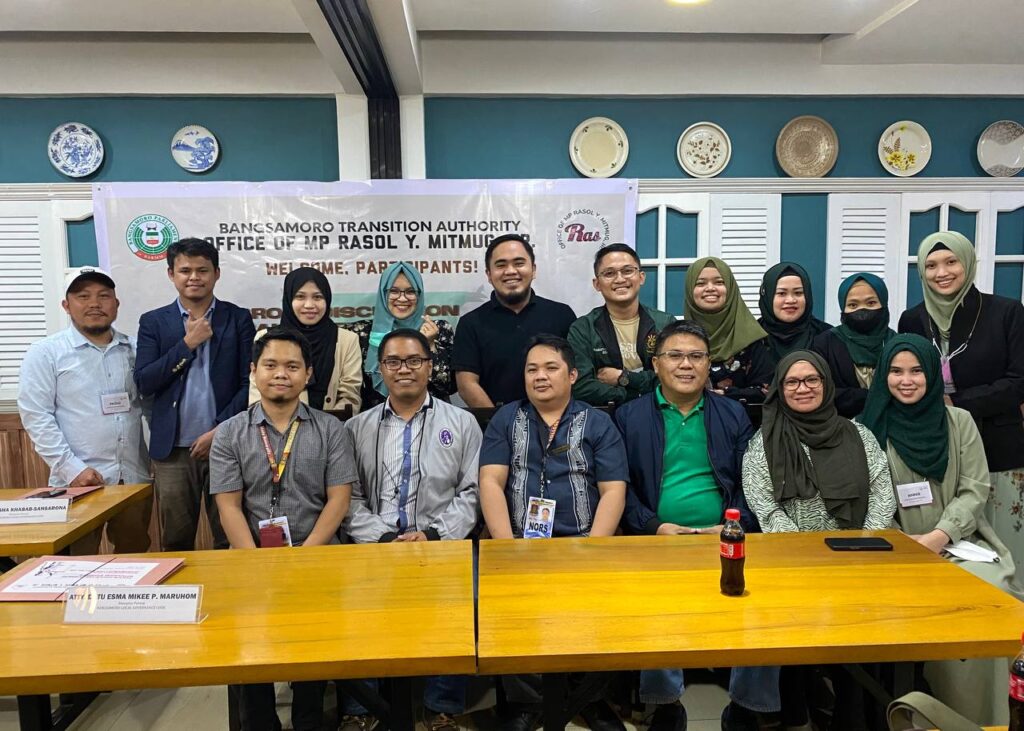
The FGD centered on the legal issues on the provisions of the proposed bill as they discussed the possibilities of resolving and/or raising some conceivable constitutional, statutory, jurisprudence and ordinance challenges in the bill.
MP Mitmug, in his welcome address, said the LGUs have a huge role in the crafting of the LGC considering the responsibilities that would affect the local government.” The legal experts reviewed the bill based on existing laws in the Philippines and exchanged thoughts during the session.
“In the proposed bill, it imposed professional tax of P 1, 300.00 and under the law, the professional tax is just P 300.00. Once you pay a professional tax in any city or provinces, it is applicable, or you can exercise it anywhere in the Philippines. Is it not a disadvantage on the part of the Bangsamoro? Instead of paying 300.00, they would pay professional tax of P 1, 300.00?” said by Atty. Norsary S. Mamad. He also wished that the experts behind the proposed BTA bill were present, so that they can possibly rebut the issues being raised and cite their stance thereupon.
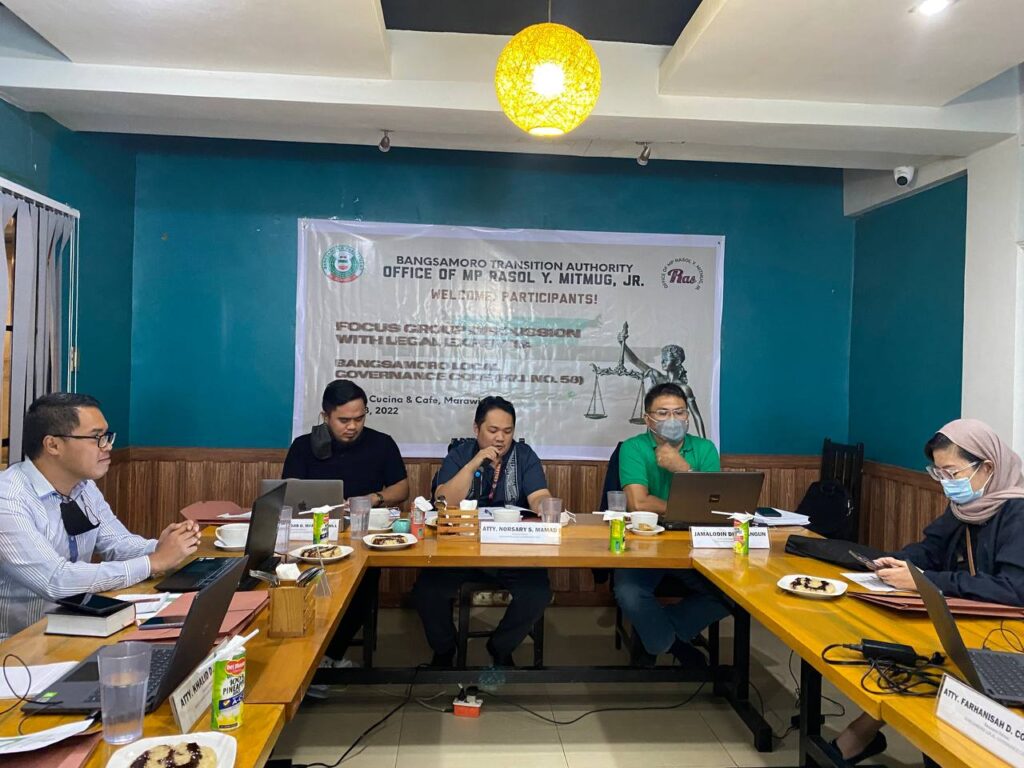
The legal representatives in said FGD include Atty. Norsary S. Mamad (Special Assistant for Legal Matters-MSU System and Overall Assistant Dean at MSU College of Law), Atty. Farhanisah D. Comacasar, Sh.L., REB, CSE, LPT (Professor- MSU College of Law and MSU College of Business Administration and Accountancy), Atty. Hapsha Khabab-Sansarona (Ministry of Agriculture, Fisheries and Agrarian Reform, Lanao del Sur), Atty. Johari U. Diacat, CE (Private practitioner), Atty. Khalid D. Moner (Attorney III, MSU Legal Services Division), Nassif Nagamora, JD (Assistant Executive Director, MSU Legal Aid and Human Rights Center), Mohammad Mojib Datumanong Marangit, Sh. L. (Professor, Al-Khwarizmi International School, Marawi City).